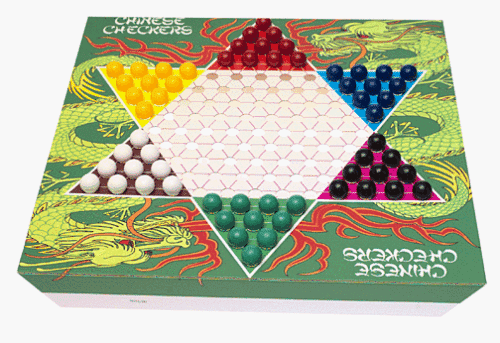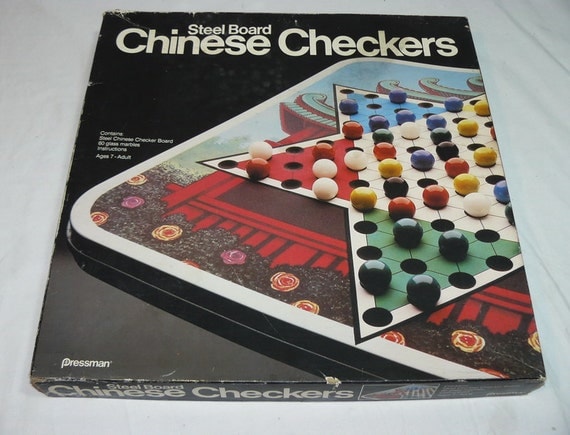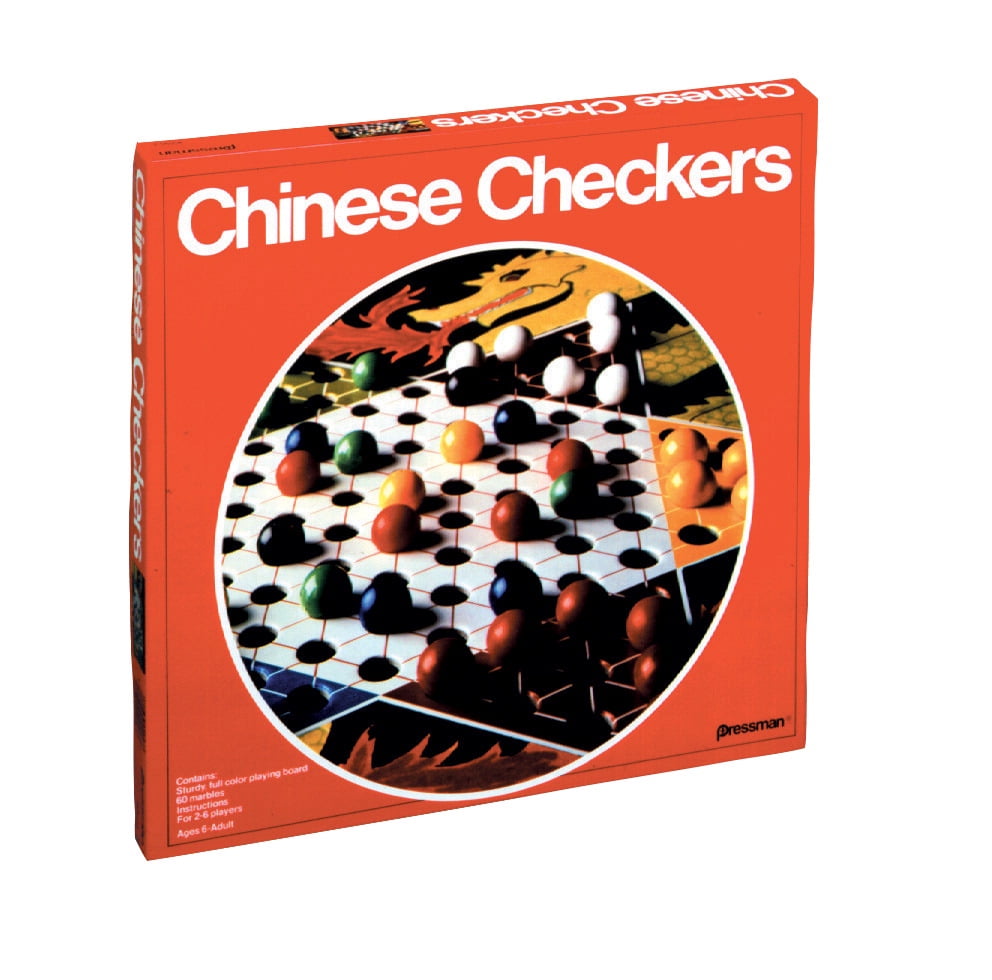
Even in Chinese, the game is known as "Chinese Checkers," despite having no actual ties to the country.

In the 1930s, as Pressman Co's game reaped success in the United States, other toy and game brands attempted to cash in on the craze as well.Įach various company spin-off also included the Oriental themes tacked on by Pressman Co., and ultimately Milton Bradley Company patented the name "Chinese Checkers" in 1941 as the title for their version of the game.Īnd the name stuck.
Pressman chinese checkers full#
The game was released in 1928, and it soon became far more popular than its English or German ancestors. Classic gameplay on a full colored game boardIncludes 60 brightly colored marblesA great cornerstone for your game. Written in a chop-suey style font and bedecked with dragons and absurd Fu Manchu imagery, Hop Ching Checkers took the German/English board game and injected it with a heavy dose of early-1900's Orientalism. It would be until the American toy company Pressman Co., obsessed with the "Oriental mystique" and more than a bit racist, released their version of Stern-Helma under the name "Hop Ching Checkers." Dubbed "Stern-Halma" ("Halma" being the German name for Hoppity, and "Stern" being "star") modern Chinese Checkers was born.īut it wasn't Chinese yet. Hoppity (which, by the way, is the most 1890's British name for a board game imaginable) eventually made its way to Germany, where it abandoned its British squareness and adopted a six-pointed star for a board. Classic game play Chinese Checkers Game from Pressman Toy features colorful, sturdy game board, 60 plastic marbles and rules. Like Chinese Checkers, the game allowed for more than two players (in this case, four) each playing from the corner of the board.

Most sources can agree that it first appeared as a game called "Hoppity," which was popular in Great Britain in the latter part of the 19th century. There is a bit of historical uncertainty about the origins of the modern game. 'Chinese Checkers' sure is a funny name for a board game that comes from Germany and has nothing to do with checkers. Players jump over their own and their opponents' pieces with the objective of being the first to move all their pieces from one side to the opposing side.The Explainer is where we explain an aspect of Chinese life. The Milton Bradley Company got a patent on Chinese Checkers thirteen years later (1941). Parents can help keep young minds sharp by deploying fun and educational at-home learning games. Please sign into your online account to view your current discounted pricing. Many were given other names but since no one seemed to own the rights to the name many were just called Chinese Checkers. Pressman Chinese Checkers Game Our pricing will be updated effective 8/15. Several other manufactures started to make the game. 5 inches Unfolded board size: 14.75 inches by 14. Box size: 10.5 inches by 10.5 inches by 1. In the 1930s a craze for Chinese Checkers swept across America. We offer free, same-day delivery to hospital patients This classic Chinese Checkers set by Pressman includes a colorful, sturdy game board, 60 bright plastic marbles, and instructions. The game was given a Chinese name and theme in keeping with the current interest in all things oriental (among them the discovery of King Tut's tomb in 1922 and the 'mah jongg' game that was introduced in 1923). however, it was not called Chinese Checkers. The brothers Bill and Jack Pressman made up the name 'Chinese Checkers' around 1928. was founded, Pressman introduced the first commercially produced Chinese Checkers game in the U.S. This was the same game as the 1892 Star-Halma. The first Chinese Checkers game to be published in the United States was 'Hop Ching Checkers' in 1928 by J. Spears & Sons introduced the star board to England in 1909. The first game of Chinese Checkers was published and patented by the German game company Ravensburger (Otto Robert Maier) under the name Stern-Halma (stern means star in English Star-Halma) in 1892.

Chinese Checkers is not from China and it really has nothing to do with the game Checkers. Chinese Checkers was invented in Germany in 1892 and it's derived from the game of Halma (1883).


 0 kommentar(er)
0 kommentar(er)
